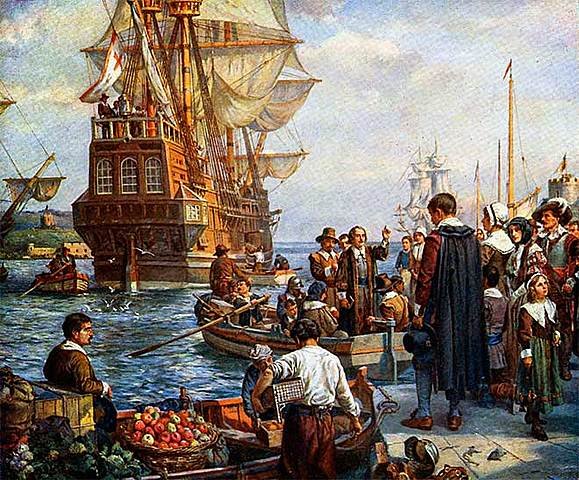David Hume, a prominent figure of the 18th century, left an indelible mark on the history of economic thought. Although primarily recognized as a Scottish philosopher, Hume also made valuable contributions to economic theory and international trade—fields that remain highly relevant today. Through his meticulous approach and his capacity to question established norms, Hume laid the foundations for many modern theories in these disciplines.
Born in 1711 in Edinburgh, Hume excelled not only in philosophy but also in economics, history, and politics. His reflections on human nature and political economy have been studied and admired by generations of scholars. In particular, Hume’s theory of international trade was ahead of its time, setting the stage for our modern understanding of economic dynamics between nations.
Hume’s ideas challenged the prevailing mercantilist beliefs of his era by proposing a more liberal and expansive view of trade. According to Hume, international trade not only enriched nations but also fostered peace and mutual understanding. His economic theory centered on the notion that natural commercial equilibrium was achieved through the flow of money and goods between countries—a concept that continues to serve as a cornerstone in contemporary economics.
In this blog, we explore David Hume’s contributions to international trade theory and their lasting impact on the field of economics. Through a detailed analysis of his principal ideas and their modern relevance, we seek to understand how his teachings continue to influence global economic policies and practices.
Hume’s Background and Intellectual Influences
David Hume, an 18th-century Scottish philosopher and economist, was born on May 7, 1711, in Edinburgh. His life and work unfolded in a historical context marked by the rise of empiricism and the Enlightenment—intellectual movements that championed reason and sensory experience as primary sources of knowledge. Hume was educated at the University of Edinburgh, where he developed a profound interest in philosophy and the social sciences.
Hume’s thinking was significantly influenced by contemporaries such as John Locke and George Berkeley, who also advocated empiricism; many of them are considered pioneers of international trade. Unlike his predecessors, Hume elevated empiricism by questioning the very notion of causality and the nature of human perception. These philosophical inquiries laid the groundwork for his contributions to economic theory, particularly in international trade.
In his work Economic Essays (found in Essays, Moral, Political, and Literary), Hume explored various economic ideas that later influenced thinkers like Adam Smith. One of his most notable contributions was the balance of payments theory, in which he argued that the flow of precious metals (such as gold and silver) between countries would self-regulate through market mechanisms. This concept, though rudimentary, prefigured fundamental aspects of classical economics and globalization.
In addition to his economic essays, Hume is widely recognized for his History of England, in which he documented the political and social events that shaped his country. This historical work not only solidified his reputation as an intellectual but also provided him with a broader perspective on international relations and trade.
The historical context in which Hume lived—characterized by the Scientific Revolution and the early glimmers of the Industrial Revolution—was crucial for the development of his ideas. His contributions to international trade theory and economic thought reflect a deep understanding of commercial dynamics and the interconnectedness of nations, concepts that remain pertinent in modern economics.
Hume and the Economy: Key Contributions
David Hume was a pioneer in the analysis of trade and the balance of payments, offering ideas that both challenged and complemented the economic theories of his time. In his work Essays, Moral, Political, and Literary—particularly in the essays Of Commerce and Of the Balance of Trade—Hume developed key concepts about how nations interact economically.
Trade Theory and the Balance of Payments
Hume argued that international trade is not a zero-sum game where one country benefits at the expense of another. Instead, he proposed that trade can be mutually beneficial, enhancing the wealth and prosperity of all nations involved. This perspective stood in stark contrast to the prevailing mercantilist ideas, which viewed exports as inherently positive and imports as detrimental.
Price-Specie Flow Mechanism
One of Hume’s most influential concepts is the price-specie flow mechanism, presented in his essay Of the Balance of Trade. Hume explained that the flows of precious metals (such as gold and silver) between countries have a self-regulating effect on prices and trade. According to Hume, if a country runs a trade surplus, it will receive more precious metals, which increases its money supply. This expansion in the money supply will drive up domestic prices, making exports less competitive and imports more attractive. Eventually, this process corrects the trade imbalance, demonstrating Hume’s profound understanding of economic adjustment mechanisms.
Hume’s insights regarding money supply, prices, and the price-specie flow laid the groundwork for future economic theories. His analysis of how monetary flows between countries influence international trade remains a fundamental pillar in the study of global economics, providing a robust theoretical framework to explain trade dynamics and balance of payments.
Impact on International Trade
David Hume, one of the most influential philosophers of the Scottish Enlightenment, also left a significant legacy in economic theory, particularly in international trade. Although he did not develop a complete theory of comparative advantage like David Ricardo later did, Hume anticipated several of its key principles. He argued that trade between nations is not only beneficial for economic growth but also essential for global stability and peace.
In his writings, Hume discussed the economic interdependence between nations, emphasizing that international trade enables countries to specialize in producing goods where they hold a comparative advantage. This specialization not only improves economic efficiency but also fosters a spirit of cooperation and mutual understanding among nations. Hume believed that deep, reciprocal trade relationships make it more likely for countries to resolve their differences through diplomacy and dialogue rather than conflict.
Furthermore, Hume addressed the idea that trade flows help balance national economies. He posited that trade deficits and surpluses tend to self-correct through adjustments in prices and currency values—an idea that anticipates aspects of purchasing power parity. These principles, though elementary by today’s standards, laid the foundation for subsequent economic theories and have had a lasting impact on economic thought.
Thus, David Hume’s contributions to international trade underscore the importance of economic interdependence and global cooperation. His optimistic view that free trade can promote both peace and prosperity remains highly relevant in today’s interconnected global economy.

Relevance and Legacy of Hume’s Ideas
David Hume’s influence on economic and international trade theory has been profound and enduring. His ideas deeply impacted later thinkers, including prominent figures such as Adam Smith and John Maynard Keynes. Hume was a trailblazer in arguing that international trade is not merely beneficial, but essential for economic prosperity. His focus on the balance of trade and the flow of precious metals laid the groundwork for future economic theories.
Adam Smith, often hailed as the father of modern economics, borrowed many of Hume’s concepts. In his seminal work, The Wealth of Nations, Smith expanded on Hume’s ideas about international trade, developing theories of absolute advantage and the division of labor. Hume’s influence is also evident in Keynes’s theory of aggregate demand, which examines how total spending in an economy affects production and employment.
Relevance in Modern Economics

Today, Hume’s ideas about trade and economic interdependence continue to inform contemporary policy debates and economic research. Globalization and international trade remain central themes in modern economics, and the principles Hume established continue to guide economists and policymakers as they navigate complex global systems.
For instance, Hume’s theory of automatic adjustment of the balance of payments is fundamental in understanding how trade imbalances correct themselves over time—a concept applicable to analyzing trade relations between major economies such as the United States and China. Similarly, Hume’s theories on money flow and price adjustments have influenced central banks’ decisions on interest rates and inflation control.
Moreover, Hume’s emphasis on free and fair trade resonates in today’s international trade negotiations and policy formulations aimed at promoting global economic cooperation.
Conclusion
David Hume’s contributions to economic theory and international trade are foundational for understanding the evolution of these disciplines. His analysis of the balance of trade and the effects of monetary flows introduced a novel and critical perspective that has endured over time. Hume demonstrated that trade imbalances tend to self-correct through adjustments in prices and money supply—a concept that has become a pillar of international trade theory.
Furthermore, his strong advocacy for economic freedom and unrestricted trade influenced countless later economists, reinforcing the idea that free trade is a key driver of overall prosperity. Hume also highlighted the economic interdependence among nations, emphasizing that a country’s well-being is intrinsically linked to that of others—a principle that remains highly relevant in today’s globalized world.
Studying thinkers like David Hume is essential for understanding the foundations of modern economics. His ideas provide a solid theoretical framework and continue to inspire reflection on both current and future economic dynamics. The depth and lasting relevance of his contributions underscore the importance of valuing the legacy of great economists from the past.
References
Hume, David. Essays, Moral, Political, and Literary. Liberty Fund, 1987.
This collection compiles a series of essays in which Hume addresses fundamental topics in economic theory and international trade, including his famous essay «Of Money.»
Hume, David. A Treatise of Human Nature. Clarendon Press, 1739-1740.
Although primarily focused on philosophy, this treatise contains ideas that indirectly influenced his economic thought and trade theory.
Fieser, James (Ed.). Early Responses to Hume’s Writings on Religion. Thoemmes Press, 2000.
This volume includes contemporary responses and critiques of Hume’s works, providing additional context for his economic ideas.
Rashid, Salim. «David Hume and Eighteenth-Century British Economics.» History of Political Economy, vol. 5, no. 2, 1973, pp. 172-198.
This academic article offers an in-depth analysis of Hume’s contributions to 18th-century economic theory.
Smith, Adam. The Wealth of Nations. W. Strahan and T. Cadell, 1776.
Although not authored by Hume, Smith’s work was significantly influenced by Hume’s ideas, particularly regarding international trade and economic theory.
Skinner, Andrew S. A System of Social Science: Papers Relating to Adam Smith. Clarendon Press, 1979.
This book provides a detailed analysis of Hume’s influence on Adam Smith’s economic thought.
The study of David Hume’s works and the responses to his theories offers a comprehensive view of his impact on economic theory and international trade. His essays—especially «Of Money»—remain indispensable references for understanding the economic dynamics of the 18th century and their relevance in today’s global economy.



Pingback: Historia y legado del Patrón Oro en la Economía Mundial